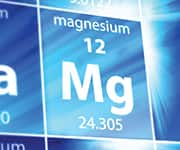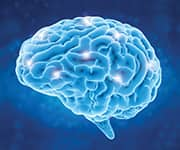LIFE EXTENSION MAGAZINE
In a 2022 report, the American Psychological Association noted that 73% of U.S. adults say they feel “overwhelmed by the number of crises facing the world right now.”1
Chronic stress has been linked to:2,3
- Anxiety and depression
- Cardiovascular disease
- Obesity
- Menstrual problems
- Sexual dysfunction
- Gastrointestinal problems
- Hair and skin conditions
People suffering from stress-related symptoms, depression, or anxiety often have low blood levels of magnesium.4
In a follow-up analysis of a clinical study, it was found that approximately 44% of participants screened for stress were magnesium deficient.5
Preclinical studies found that a specific form of magnesium called magnesium acetyl taurate increased brain tissue levels of magnesium more effectively than other forms of magnesium tested.6,7
Magnesium acetyl taurate was recently tested in women with premenstrual syndrome over a duration of three menstrual cycles, who had inadequate magnesium intake from food.8
Researchers found improved scores for symptoms of stress including nervous tension, anxiety, irritability, headache, fatigue, and depression in women supplementing with magnesium acetyl taurate twice daily.
The Magnesium-Stress Connection
Decades ago, researchers first noticed a link between magnesium and stress.9,10
Many of the frequently-reported symptoms of stress—fatigue, irritability, anxiety, headache, and upset stomach—are the same symptoms commonly found in patients with magnesium deficiency.4
As scientists explored the connection, they discovered that it goes both ways:4,11
- The body’s responses to stress lead to a loss of magnesium in the urine, over time creating a magnesium deficiency.
- Low magnesium levels make people more susceptible to stress, increasing release of stress hormones like adrenaline and cortisol, which can be harmful if their levels remain elevated.
This can create a vicious circle. As low magnesium levels make the effects of stress more severe, that further reduces magnesium levels, making people even more susceptible to stress, and so on.4
On the other hand, maintaining adequate magnesium levels helps protect against stress and other conditions.
Magnesium is an important cofactor for the synthesis of serotonin, a neurotransmitter closely linked to positive mood and feelings of calm. Most antidepressant and anti-anxiety medications act at least partially by modulating serotonin neurotransmission.4,11
Magnesium can also inhibit release of the stress hormone cortisol from the adrenal gland.12
Unique Brain-Targeted Magnesium
Scientists identified a specific form of magnesium that, taken orally, can rapidly increase brain levels of magnesium.
Magnesium acetyl taurate is magnesium combined with a form of the amino acid taurine. The combination makes it easier for the magnesium to cross the blood/brain barrier.
Studies have found that this form of magnesium was more easily absorbed into the brain than the other forms of magnesium tested.
In one study, rats were given either magnesium acetyl taurate or two other common forms of magnesium, magnesium sulfate and magnesium oxide.6 Brain tissue and blood magnesium levels were significantly higher after eight hours in the group receiving magnesium acetyl taurate.
Another preclinical study pitted magnesium acetyl taurate against four other common forms of magnesium: magnesium sulfate, oxide, citrate, and malate.7 Again, brain levels of magnesium were significantly higher in the group receiving magnesium acetyl taurate than with control or any of the other forms of magnesium tested.
This study also found that magnesium acetyl taurate was associated with decreased anxiety indicators in rodents.
This form of magnesium has also shown promise in an early study in humans.8
Easing Stress
Researchers enrolled adult women with symptoms of premenstrual syndrome who had inadequate magnesium intake in their diet.8 Premenstrual syndrome can cause symptoms similar to those of stress.
After receiving 385 mg of magnesium acetyl taurate twice daily over a series of three consecutive menstrual cycles, scores for numerous symptoms were significantly reduced, including those for nervous tension, anxiety, irritability, headache, fatigue, and depression.
Intake of this form of magnesium may promote calm and help people cope with symptoms of stress and anxiety, whatever the cause.
What you need to know
Relief for Stress and Anxiety
- Chronic stress is associated with cardiovascular disease, obesity, anxiety, depression, and more.
- The close link between stress and magnesium in the body has gained interest by researchers. Having low magnesium levels increases susceptibility to stress and its negative health consequences.
- One specific form of magnesium, magnesium acetyl taurate, was found to be superior to other forms tested in raising brain levels of magnesium.
- In a human study, taking 385 mg of magnesium acetyl taurate twice daily reduced premenstrual syndrome symptoms that are similar to those of stress, including anxiety, irritability, headache, fatigue, and depression.
Summary
Chronic stress can be extremely harmful, increasing the risk cardiovascular disease, obesity, and other conditions.
The close link between stress and levels of magnesium in the body has sparked the interest of researchers.
A specific form of magnesium called magnesium acetyl taurate improves the bioavailability of magnesium and was found to be more effective at raising brain levels of this essential mineral than the other forms of magnesium tested.
The Importance of Magnesium
Magnesium is an important essential mineral in the body.4,5
It is involved in most major metabolic and biochemical processes and serves as a cofactor (“helper molecule”) for more than 300 different enzymatic reactions.4,5
Low magnesium has been tied to numerous health problems, including cardiovascular disease, diabetes, osteoporosis, depression, and anxiety.11,13
Suboptimal levels of magnesium are more common than most people realize.
It has been estimated that 64% of all men and 67% of women in the U.S. have inadequate dietary intake of magnesium. More than 80% of people over the age of 71 have an inadequate dietary intake of magnesium.14
Making matters worse, excessive sodium intake, high alcohol and caffeine intake, and some medications (including proton pump inhibitors for acid reflux) can further contribute to lower magnesium levels.4
If you have any questions on the scientific content of this article, please call a Life Extension Wellness Specialist at 1-866-864-3027.
References
- Available at: https://www.apa.org/news/press/releases/stress/2022/march-2022-survival-mode. Accessed April 26, 2022.
- Available at: https://www.apa.org/topics/stress/body. Accessed April 29, 2022.
- Available at: https://www.webmd.com/balance/stress-management/stress-symptoms-effects_of-stress-on-the-body. Accessed April 29, 2022.
- Pickering G, Mazur A, Trousselard M, et al. Magnesium Status and Stress: The Vicious Circle Concept Revisited. Nutrients. 2020 Nov 28;12(12).
- Noah L, Pickering G, Mazur A, et al. Impact of magnesium supplementation, in combination with vitamin B6, on stress and magnesium status: secondary data from a randomized controlled trial. Magnes Res. 2020 Aug 1;33(3):45-57.
- Bagatela BS, Lopes IP, do Amaral Pupo IC, et al. Biochemical and hematological study of the supplementation with ATAMg, a new source of N-acetyl-based organic magnesium, on bioavailability. Journal of Society for development in new net environment in B&H (HealthMED). 2018;12(4):187-9.
- Uysal N, Kizildag S, Yuce Z, et al. Timeline (Bioavailability) of Magnesium Compounds in Hours: Which Magnesium Compound Works Best? Biol Trace Elem Res. 2019 Jan;187(1):128-36.
- Rousseau C. Efficiency of a magnesium salt (ATA MG® 770mg) on premenopausal syndrome: a clinical study report. Synapharm (Company supplied data). 2021.
- Galland L. Magnesium, stress and neuropsychiatric disorders. Magnes Trace Elem. 1991;10(2-4):287-301.
- Seelig MS. Consequences of magnesium deficiency on the enhancement of stress reactions; preventive and therapeutic implications (a review). J Am Coll Nutr. 1994 Oct;13(5):429-46.
- Cuciureanu MD, Vink R. Magnesium and stress. In: Vink R, Nechifor M, editors. Magnesium in the Central Nervous System. Adelaide (AU)2011.
- Murck H. Magnesium and affective disorders. Nutr Neurosci. 2002 Dec;5(6):375-89.
- Ismail AAA, Ismail Y, Ismail AA. Chronic magnesium deficiency and human disease; time for reappraisal? QJM. 2018 Nov 1;111(11):759-63.
- Qu X, Jin F, Hao Y, et al. Magnesium and the risk of cardiovascular events: a meta-analysis of prospective cohort studies. PLoS One. 2013;8(3):e57720.








